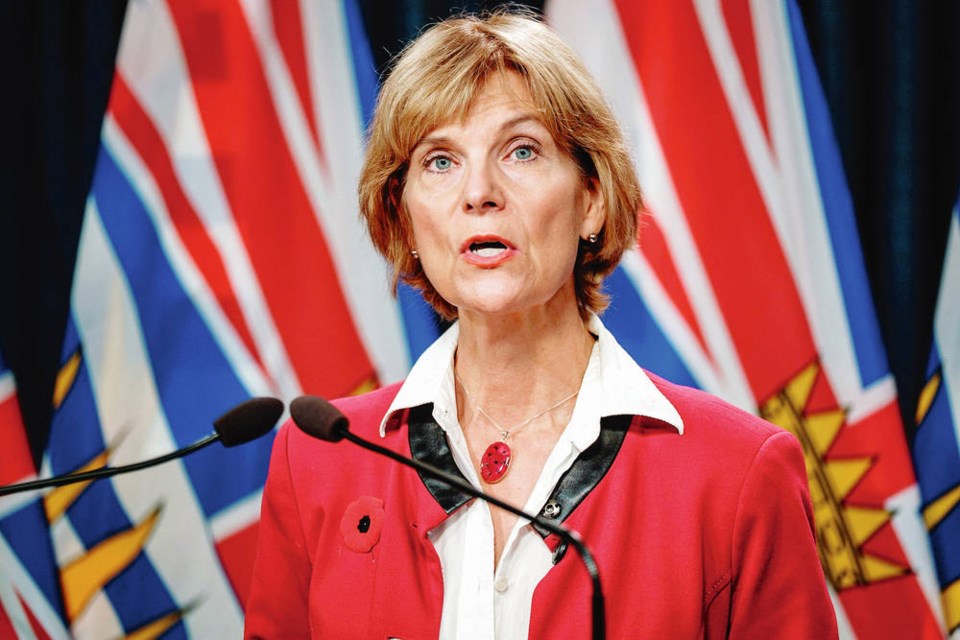B.C. seniors watchdog Isobel Mackenzie says the province has made significant investments in seniors, especially in long-term care, but when the pandemic ends, more thought and dollars need to go into home support.
The provincial budget recognized gaps in long-term care and assisted living. It will provide money to train thousands more care aides under the recently established Health Career Access Program, and level up the pay of health-care workers in seniors homes.
As well, the budget recognized the day-to-day living constraints on low-income seniors with the doubling of the seniors supplement, a top-up for low-income seniors unchanged since 1987. The maximum of $49.30 goes to $99.30 a month for a single person. About 80,000 British Columbian seniors receive it.
“I think it’s a fairly positive budget in respect of seniors,” said Mackenzie. “They have thrown a lot of money at seniors.
“I think there’s still some things to sort out once we’re on the other side of the pandemic — but the money for the wage levelling, the single-site order, and training of new care aides, that’s a lot of money.”
The focus is almost exclusively on long-term care, but Mackenzie said a majority of seniors live independently at home and could do so longer with quality home support, which can involve help with everything from medications to meals and dressing.
“Both of the federal and provincial budgets did reference home care and give money to home care, but I think … we still have not come to grips with the degree to which we need better, accessible, co-ordinated, affordable, easy-to-manage home care for people.”
There is $68 million in the budget to increase the number of care aides and community care providers to deliver home care, and $12 million to provide seniors with complex-needs care in their homes. But publicly provided home support is “actually not affordable” for seniors needing daily visits and earning more than $27,000 a year — the benchmark at which seniors must co-pay the bill, said Mackenzie.
The Hospital Employees’ Union applauded the investments in seniors care, noting privatization and contracting out over the last 20 years in long-term care have created inequities for workers and, by extension, patients.
HEU interim secretary-business manager Mike Old noted reasons for hope with the province’s commitment to replace 2,850 outdated publicly operated long-term beds and an allocation of $7.8 billion over the next three years toward the government’s expansion and upgrading of hospitals across the province, including Cowichan District Hospital, using traditional financing rather than public-private partnerships. “We believe that’s a way more efficient way to finance these hospitals.”
“In the coming years, we require an ambitious capital plan to build public and non-profit care homes, while holding for-profit care home operators to account for the public money they receive to provide care,” Old said.
The B.C. Care Providers hailed new permanent funding of $585 million to address labour shortages in the seniors care sector .
The budget indicates the province’s plans to replace older health authority-owned long-term care homes — but does not include care homes operated by private and non-profit providers. The planned 1,500 new beds “falls short of the mark” of another 30,000 net new beds the Conference Board of Canada said will be needed by 2035, said Terry Lake, president of the B.C. Care Providers Association.
“We really need to be building about 2,500 every single year between now and then to meet the demand,” said Lake.
ceharnett@timescolonist.com



